Top 10: Ferries, $2.1 billion in fossil fuel related healthcare costs, Curia's Problem & More
Your To-Date Wrap Up includes Sinead Boucher, Climate and Fast-Track Perils
1. Fast-Track projects: Speaker rules no private benefit in list (RNZ, Russell Palmer)
In a fairly rare move, the Speaker of the House Garry Brownlee (National) overturned the ruling of the Clerk, David Wilson, and Assistant Speaker, Barbara Kuriger (National).
The Clerk of the House of Representatives advises the speaker and members of parliament on matters of parliamentary procedure and legal matters.
The Clerk's advice was that the listing of projects under the Fast-Track Bill appeared to benefit specific people - and therefore should be classified as private legislation - and removed from the Bill.
Private Bills - which basically grant a specific exemption to the normal laws - must go through a specific process, including seeking consents from those who may be affected.
The government pushed back against Kuriger's ruling, asking for Brownlee to be recalled into the House so it could be debated. Bishop argued the bill should remain a government bill, and - backed by Regional Development Minister Shane Jones (NZ First) - that it was a government bill for the benefit of the wider public.
Labour's Duncan Webb argued those named in the list were receiving a private interest, saying including it "would be constitutionally an outrage". The party's leader Chris Hipkins said it would be unprecedented for the Speaker to reverse Kuriger's decision, which had been based on the Clerk's independent advice.
Green MP Lan Pham argued the benefit of the projects was narrow in some cases.
Brownlee sided with the government.
Commentary: This stinks.
2. Late amendments to Fast-track bill would make decisions harder to challenge (The Post / Tom Pullar-Strecker)
The Government has unveiled a raft of amendments to the Fast-track Approvals Bill that would further liberalise the controversial planning regime …
To make objections harder, the range of people who could appeal against a fast-track consent would be reduced and some projects would be allowed to start before appeal rights had been exhausted.
Tight time limits would be placed on judicial reviews.
Expert panels that will rule on fast-track decisions could be convened by “senior lawyers” with resource management experience, without the originally-envisaged requirement they had served as a judge.
The changes would also potentially allow developments in some coastal fisheries and estuaries that would have been off-limits under earlier versions of the bill, as well as electricity infrastructure on national reserve land.
The Government would be able to designate individual applications a priority.
In a change that might make it more likely fast-track projects would be approved, the expert panels considering them would need to issue “a draft decision“ before declining any applications and give applicants the opportunity to make amendments.
3. ‘The window has closed on tree-planting’ – Rod Carr (Newsroom / Marc Daalder)
The former climate tsar discusses opposition from ‘vested interests’ in the fossil fuel sector and the opportunity New Zealand is at risk of squandering:
“The energy transition is an opportunity for New Zealand, irrespective of what Beijing and Washington do. New Zealand will be a wealthier, healthier country if we decarbonise energy production and use, transport, electricity generation and heating. Combusting fossil fuels in the open air to do things when we have known cheaper, cleaner technology is silly,” Carr told Newsroom
“It’s in New Zealand’s own self-interest to reduce our dependence and vulnerability to long supply lines of liquid fossil fuels. It’s in our interest not to inhale the stuff at ground level. We should get on and do this irrespective of what the world does. We didn’t invent solar panels, battery electric cars, heat pumps, but they are available to us and they are in our interest to take up at pace, at scale.”
This crossroads, in Carr’s view, is not one where New Zealand is a leader or – to borrow a term – a “fast follower” on climate change. That dynamic is unhelpful, the former climate boss explains.
“I don’t think we need to lead. That sort of implies that there’s some moral high ground or virtue signalling. No. No, we need to get on with it because it’s in our own self-interest to do it, not so we can show off to anybody else. It’s so that we can get the benefit of this low-emissions economy as soon as we can grab it.”
Those benefits are cheaper energy manufactured at home and healthier lives – through a shift towards walking and cycling and towards eliminating $2.1 billion in air pollution-related healthcare costs that arise from breathing fossil fuel exhaust.
Another benefit is increased efficiency. “At the end of the day, emissions are waste. It’s energy that was created that was dissipated to the environment for no return.”
The risks of not taking the right path are significant. On top of the higher costs from dependency on an outdated form of energy, plus all the pollution we expose our communities and children to, there is a reputational impact for New Zealand, which as a small trading nation is reliant on its clean, green image….
Asked about his greatest frustration, he says it was the commission’s inability to hit back against “misinformation and disinformation” spread by critics with “vested interests in obfuscation and delay”.
Full article link in heading title and here
4. Poll: More NZers oppose than support Treaty Principles Bill(1News, Tom Day)
Commentary: 1News has released a poll that shows most Kiwis do not support the Treaty Principles Bill - another significant contrast when compared to David Farrar’s Curia Market Research.
Note: Curia is also a severe outlier on National Party polling results over the last month.
Yesterday, ACT’s David Seymour boasted about Curia’s poll results, saying: “When Kiwis hear what the Treaty Principles Bill does, they overwhelmingly support it.”
Of import, Curia’s poll was commissioned by Hobsons Pledge, the anti-Māori rights crusader who has been found to spread misinformation and breach advertising codes of conduct. Hobsons Pledge is affiliated with Jordan Williams of the Taxpayers Union.
Curia Market Research has a history of problematic behaviour, including misleading poll presentations.
After the independent professional standards group, RANZ, found Curia in breach of industry standards, Farrar chose to resign from RANZ rather than await disciplinary action, which he said included expulsion or suspension.
Article continues for paid subscribers below - thanks to all readers for your support!
Full Results of the 1News Verian Poll:
The poll asked people about the Treaty Principles Bill currently before Parliament:
Do you support or oppose the bill or not know enough to say?
Support – 23%
Oppose – 36%
Don’t know enough about the bill – 39%
Prefer not to say – 2%
Those groups of eligible voters who were more likely than average (23%) to support the bill were:
ACT Party supporters – 77%
New Zealand First supporters – 48%
Men aged 55+ – 40%
National Party supporters – 30%
Those groups of eligible voters who were more likely than average (36%) to oppose the bill were:
Green Party supporters – 68%
Māori – 67%
Labour Party supporters – 52%
Women aged 18 to 34 – 49%
People living in the Wellington region – 48%
Graduates – 46%
Those with a household income of more than $150,000 – 45%
Reacting to the poll result, Seymour – the architect of the bill – said he was not surprised that more people are opposed than support the bill.
5. New emissions plan still not on track to meet climate targets (RNZ, Eloise Gibson)
The government's new emissions cutting plan has moved the country closer to its climate targets…
But it is still not on track to meet the crucial emissions budget for 2031-2035, by some nine million tonnes of planet heating gases.
The plan reveals flagship policies - such as Electrify NZ and the aim of having 10,000 EV chargers by 2030 - will have a comparatively tiny impact on emissions over the next five years…
That gets the country on track to meet its next five-year budget, but its still way off target for the budget after that.
The government says it is still got time to develop policies, but the Climate Change Commission has said action needs to start now to get changes embedded.
6. Supercharged Kiwibank dwarfed by majors, but primed to compete on price (Newsroom, Andrew Bevin)
The Government’s proposal for a $500 million capital injection into Kiwibank would allow the maverick elect to grow its operations substantially, but it would still be dwarfed by the big Australian banks.
Supercharging Kiwibank was one of 14 recommendations made by the Commerce Commission at the conclusion of its market study into personal banking.
Nicola Willis said: “Advice to the Government is that an additional $500m of capital could support up to $4 billion of business lending, or $10b of home lending. That is sufficient to add competitive pressure to the market and potentially benefit customers of other banks, as well as Kiwibank.”…
No decision on a possible stock market float during the current government has been made and Willis said she had been advised that Kiwibank would not be in a position to consider the possibility of a listing until it had completed its digital transformation project in 2028…
“Today, we are putting the major banks on notice,” Willis said. “We expect them to act on the Commerce Commission’s recommendations, including through improvements to the bank switching service and open banking reform.
She said this wasn’t too much to ask.
Commentary: $500m isn’t supercharging Kiwibank at all.
Kiwibank also appears to have far more complex issues, including a cost-to-income ratio of 65 percent for the year ended March 2024, compared with a ratio of 35 percent at ANZ, the country’s largest bank. That means, their cost structure is almost double.
In addition, Treasury has advised under current conditions, it is difficult and potentially “commercially ruinous” for Kiwibank to try to compete primarily on price.
7. Beehive lobbying ‘deeply problematic’: Wellington mayor (The Post, Julie Jacobson)
Note: Vision for Wellington has been called a right wing front group which claims it is politically impartial. The owner of Stuff / The Post Sinead Boucher is a part of it.
Further messages to a senior government minister.. from people involved with the Vision for Wellington group have again called into question its claims of political impartiality…
Earlier this month it was revealed Air New Zealand board chairperson Dame Therese Walsh had messaged Prime Minister Christopher Luxon to give him a “heads up” the new group was launching, while former Wellington mayor Dame Kerry Prendergast had texted Local Government Minister Simeon Brown 11 days before an observer was appointed to Wellington City Council to offer her assistance with governance at the council.
..Vision for Wellington..says it is bipartisan and not into political lobbying. Prendergast’s name had been bandied about as a possible Crown observer.
Councillor Ben McNulty has previously labelled them a “right-wing front group”, something Boucher has refuted, saying it was “expressly not a politically driven group.”
But new messages released under the Official Information Act (OIA) reveal other group members, regional councillor Simon Woolf and businessman Gazley were also in Simeon Brown’s ear regarding Wellington City Council.
A text message from Gazley to Brown in March, six months before the launch of the Vision group, says: ”Hi Simeon, I’m a friend of Nicola Willis, can you please call me when you have time about Wellington city council“. It was followed by a firecracker emoji. Brown did not reply….
Wellington mayor Tory Whanau said the new information clearly showed that members of Vision for Wellington had lobbied the Government around intervention, “despite previously denying this was the case”.
She took a swipe at the hand several of the group had previously had in running the city. “It's important to remind them, and the Government, that they do not stand for or represent Wellington, and are partially responsible for some of the historical issues Wellington now faces.
8. 'It shouldn't happen': Punishing employees for working to rule will lead to more strikes - CTU (RNZ, Checkpoint)
The government's plans to dock employee's pay if they work to rule as part of industrial action will cause more full strikes and lead to greater divisions between workers and employers, says the Council of Trade Unions (CTU).
Separately, the Public Service Association is now also taking legal action over restriction on working from home.
The Public Service Association (PSA) has filed a claim against the Government’s working from home directive, going to the Employment Relations Authority in an attempt to loosen restrictions in the public service.
Public Service Minister Nicola Willis in September asked the Public Service Commission to update its guidelines to reflect that working from home was not an entitlement.
This is despite Willis admitting she had no evidence or data to suggest it was a problem, and no list of businesses to support her directive.
9. Rating National’s 20 rookie MPs after their first year in the job (NZ Herald, Audrey Young)
Comment: No link above. Why would we care again and why is this even published?
10. Government to unveil plan for Cook Strait ferry replacement (RNZ)
The announcement we have all been waiting for is due today.
The government had said its version would be cheaper, even after taking into account the cancellation fees for the former contract.
Under the new plan, ports may be asked to bear more of the cost, potentially increasing prices for passengers and freight, and the Interislander service may shift to a new Crown-owned company.
Earlier in the week, Newsroom’s Jonathan Milne wrote: Ferry Decision - You’re Gonna Need A Smaller Boat with the tagline “The Govt has left the Cook Strait ferries project drifting rudderless towards the rocks for 12 months, when it could have handed responsibility to a new entity to design a sustainable solution”.
Unsurprisingly, Willis is unrepentant and stands by her decision to cancel the Kiwirail i-Rex project.




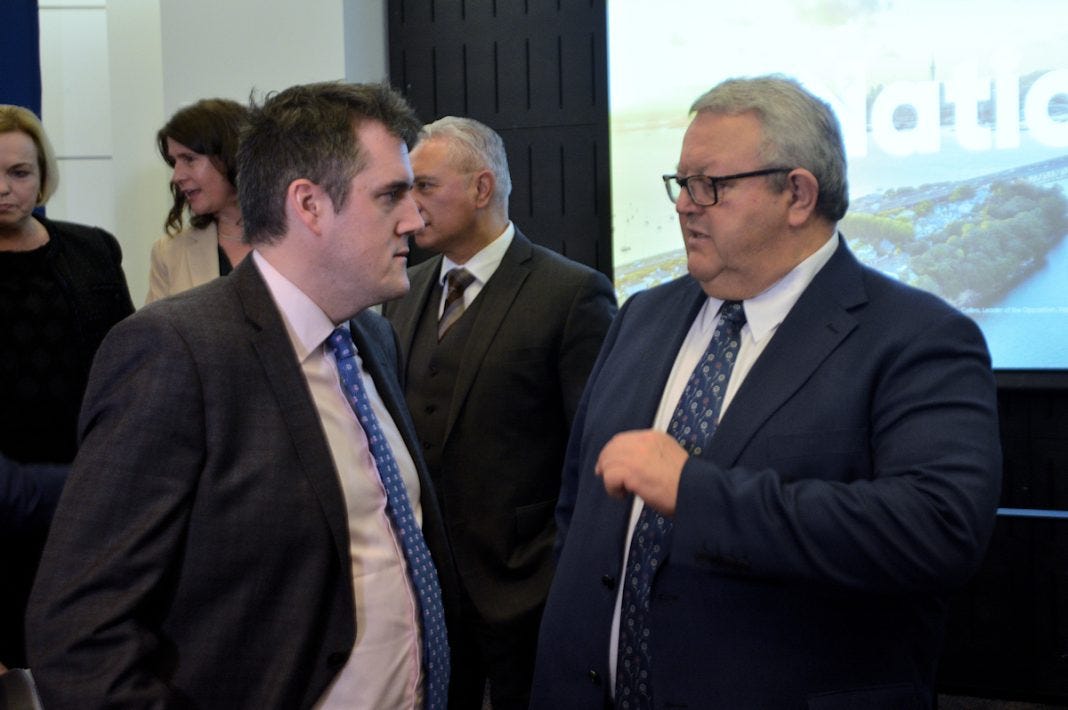
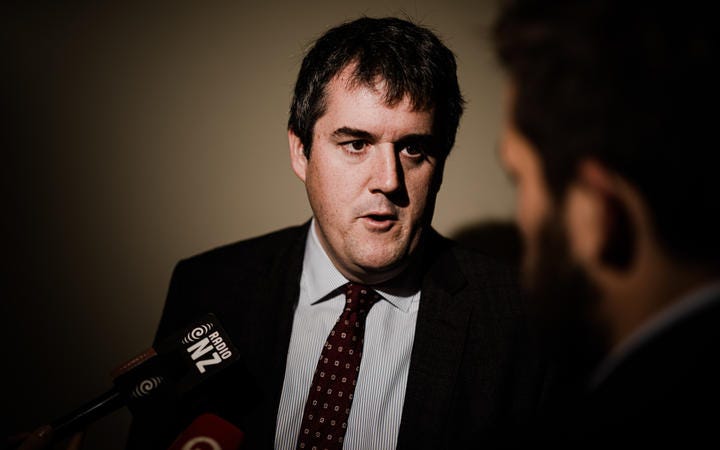
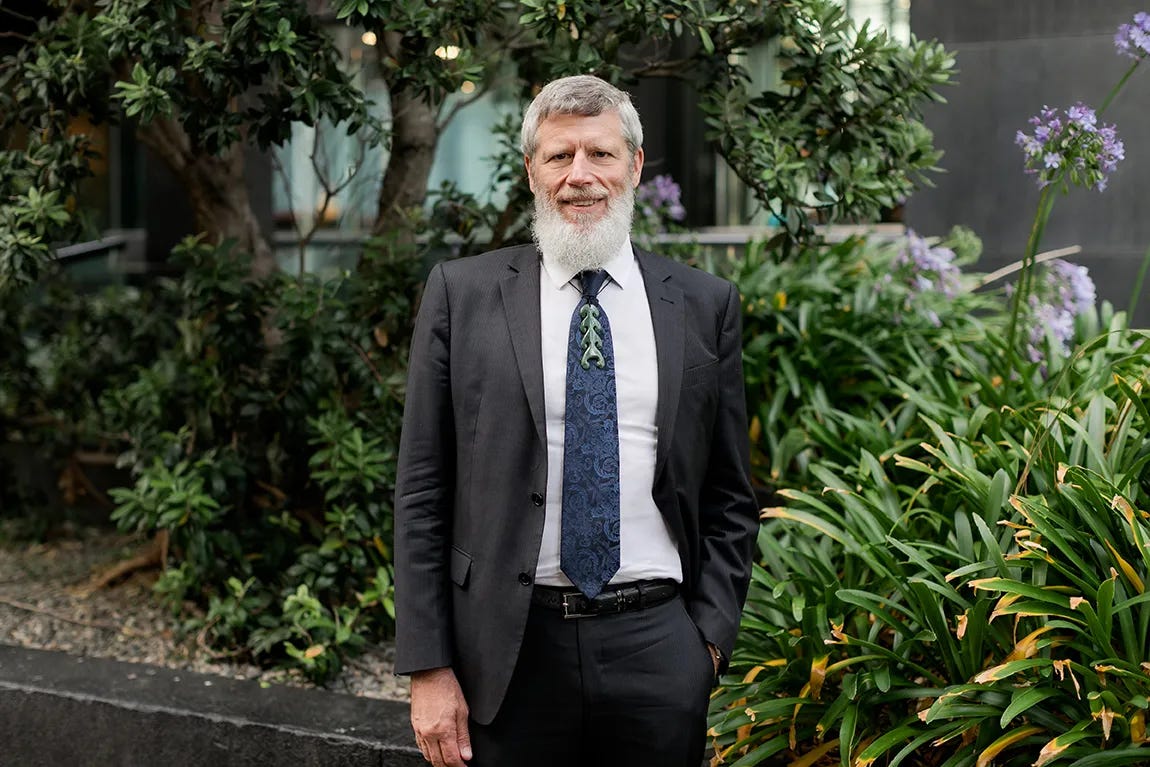

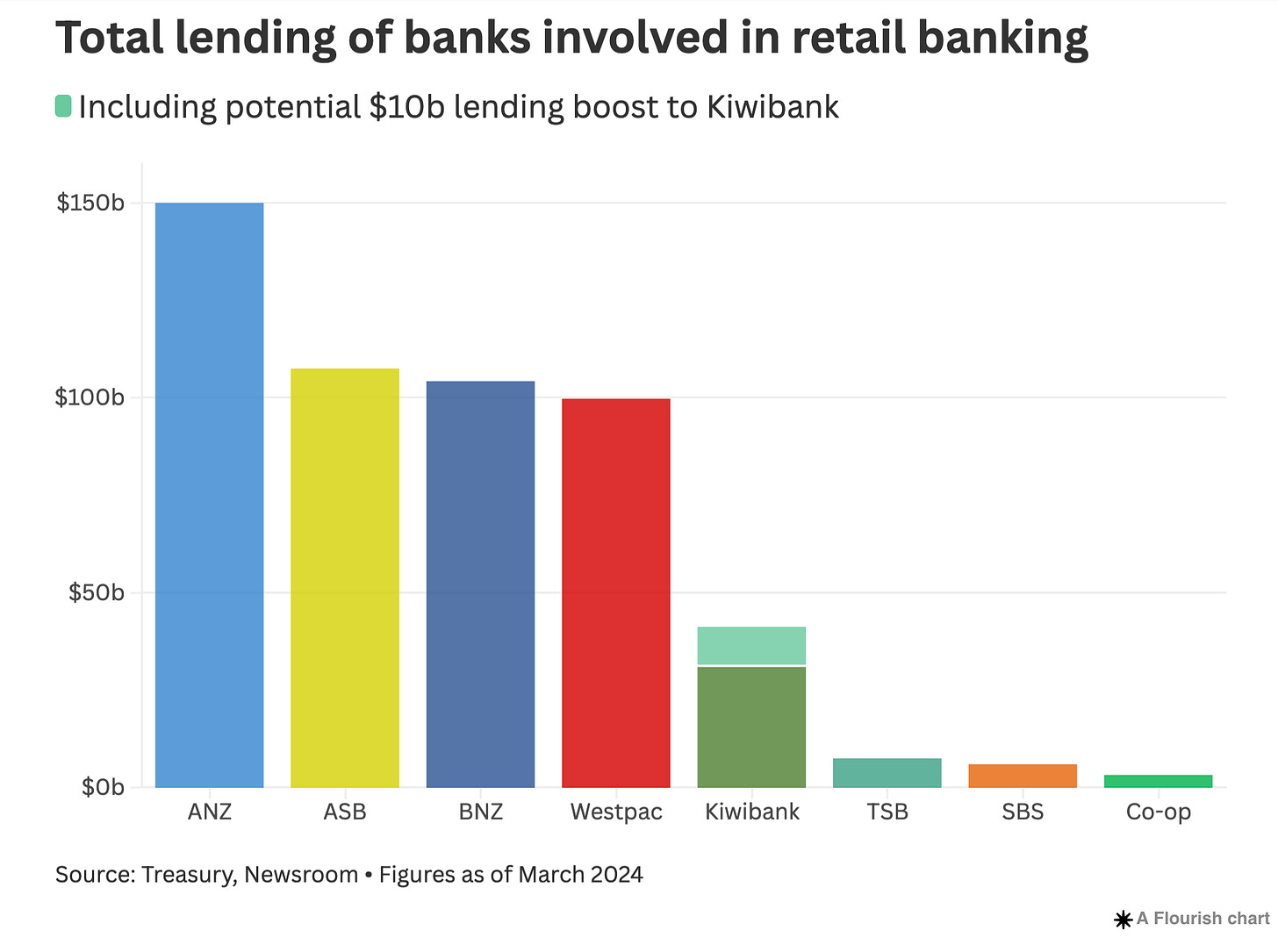
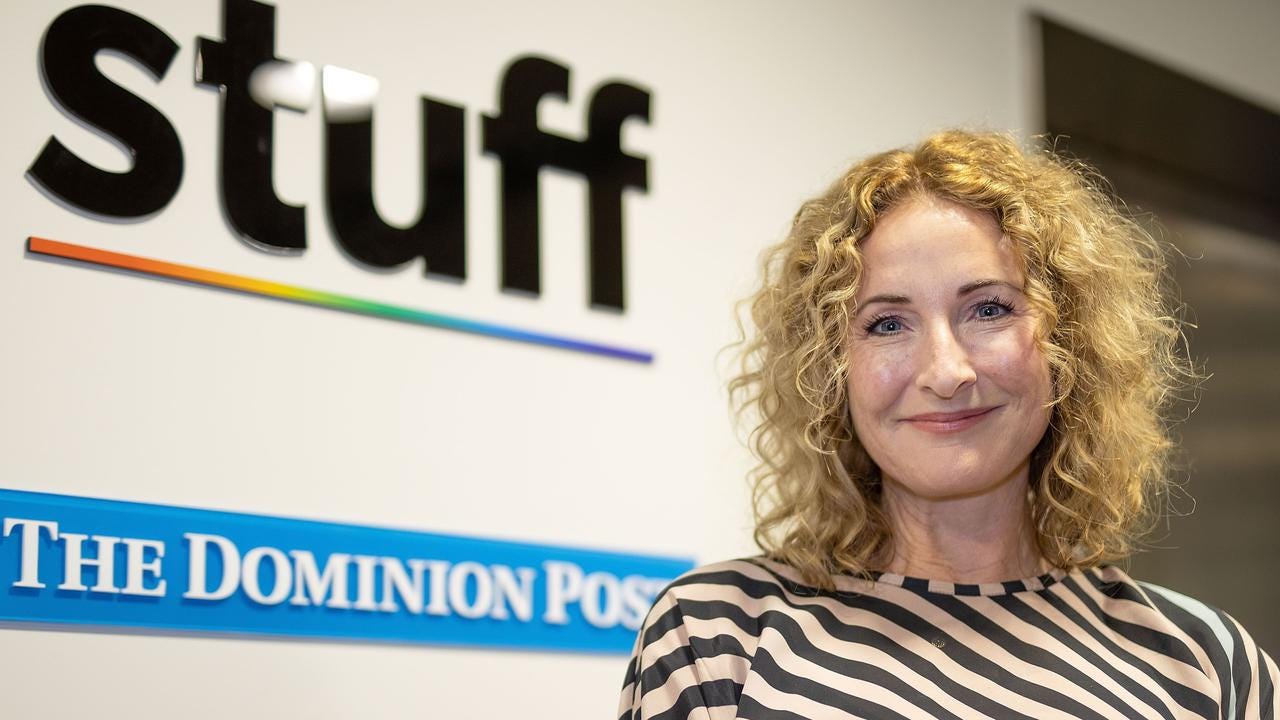


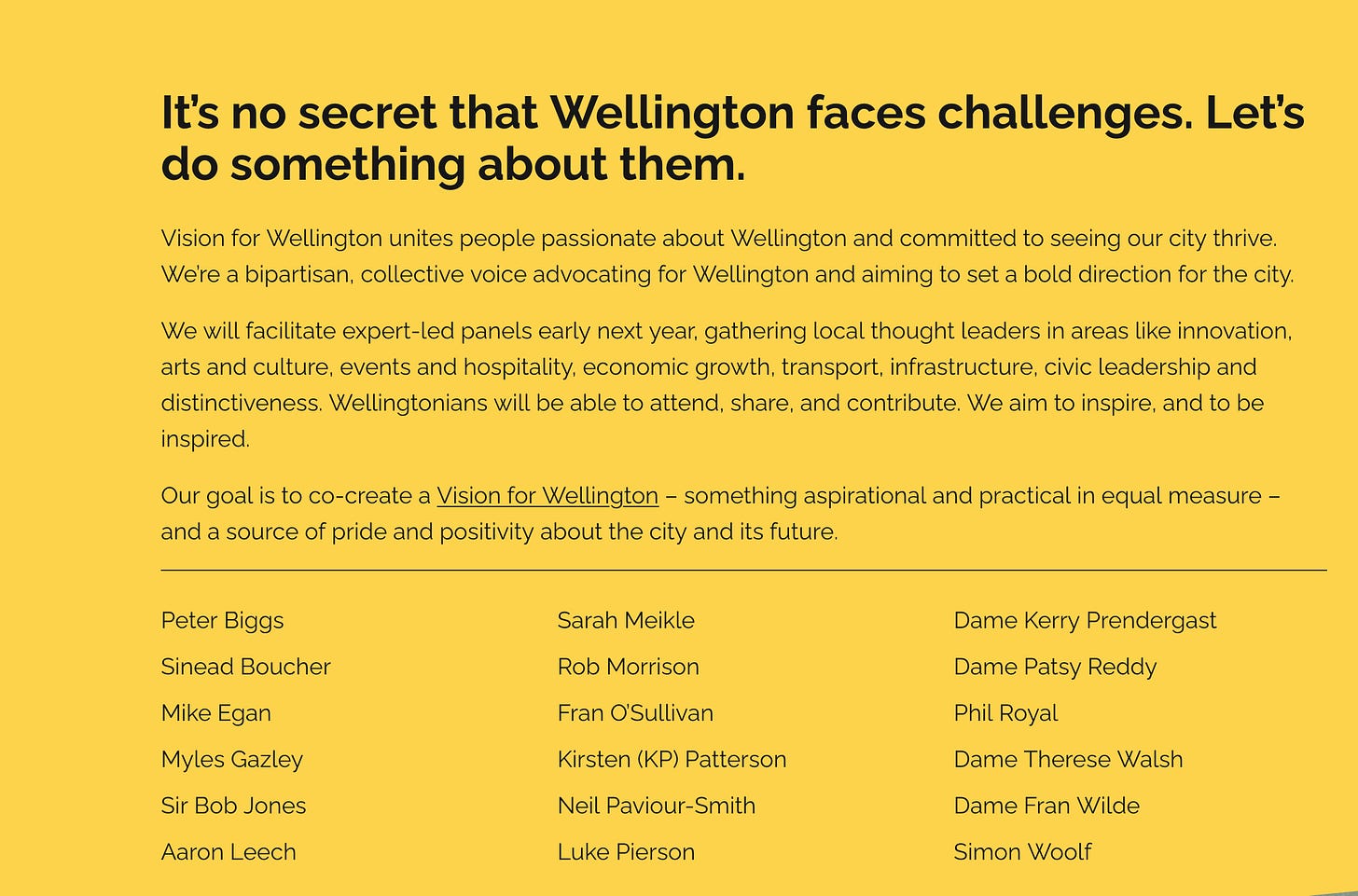
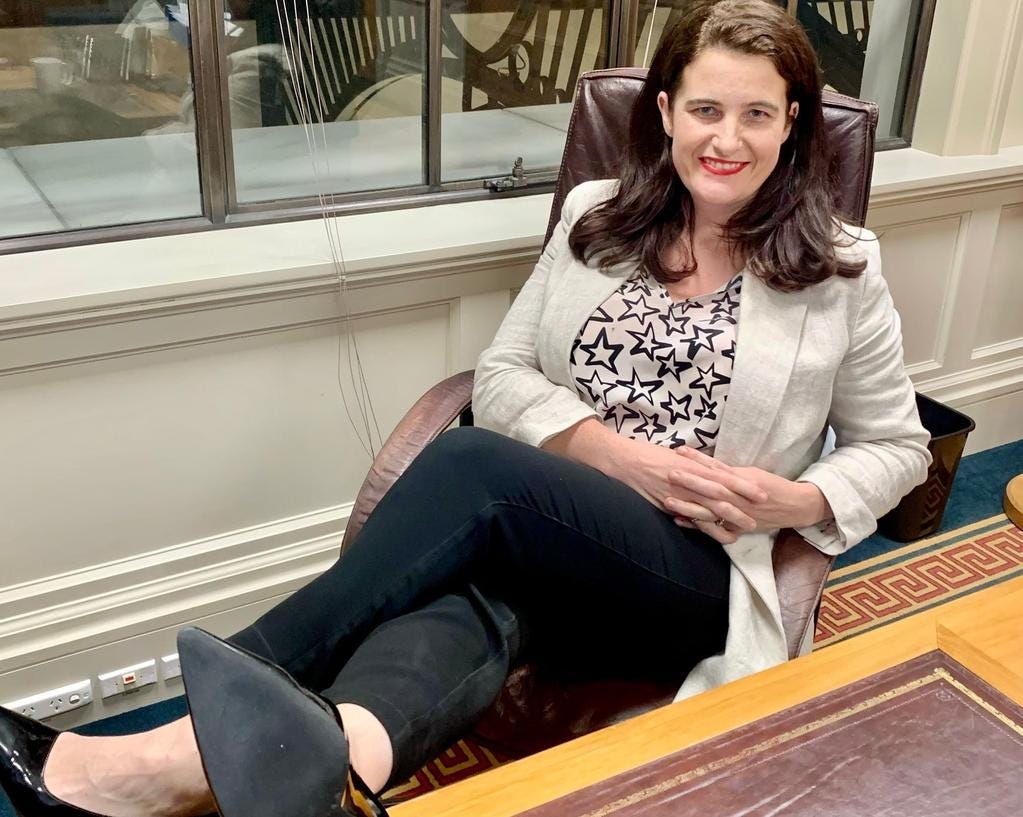
Brownlee made really bad decisions as a minister (eg no NW motorway bus lane, allowed really dumb 'smart meters') and continues this really bad decision making as speaker.
As Sinead Boucher’s political leanings become more apparent perhaps we should question the polling carried out by Freshwater for The Post - Curia-lite? My admittedly casual look at Freshwater suggests that they could be a gun for hire…